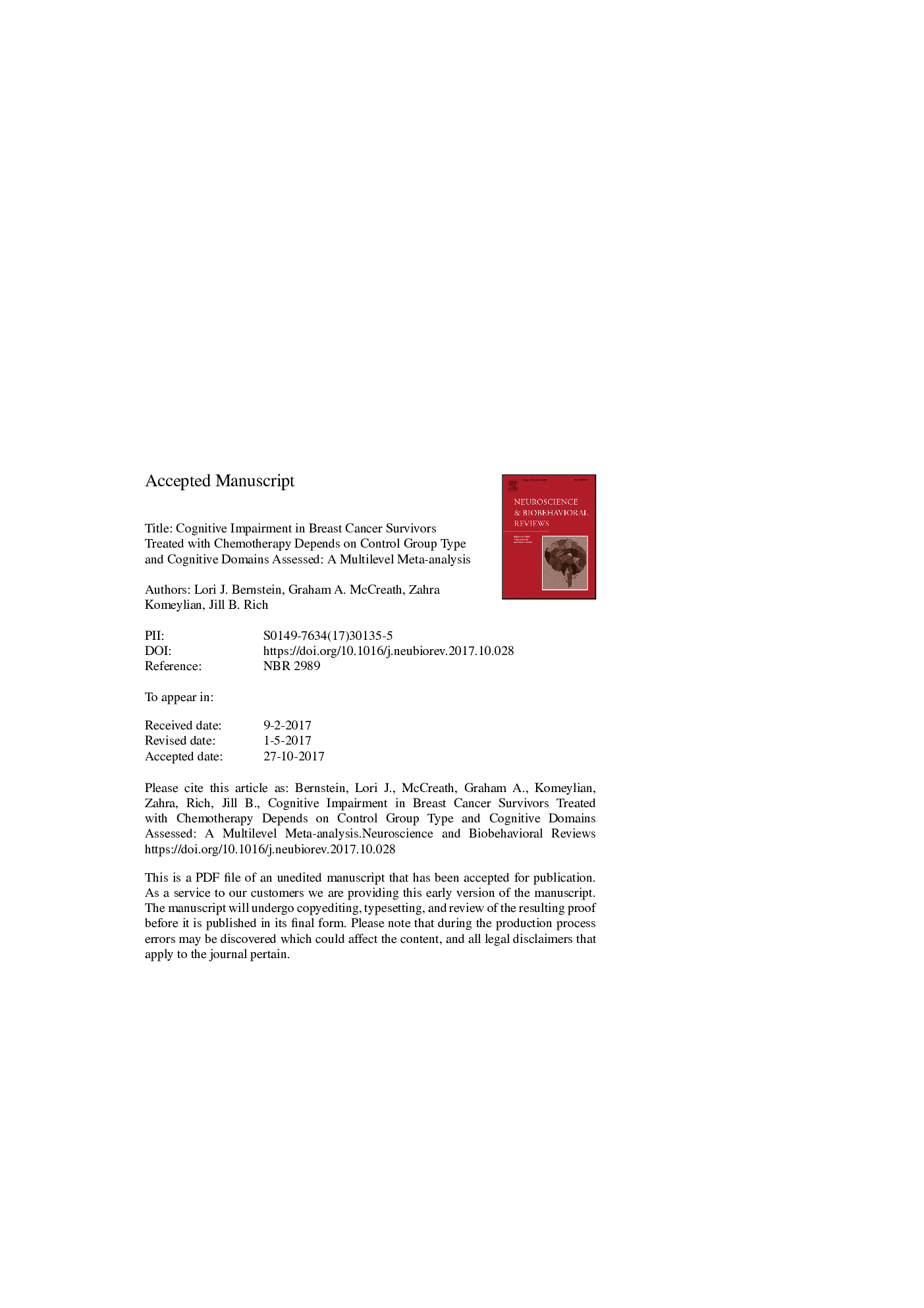| Article ID | Journal | Published Year | Pages | File Type |
|---|---|---|---|---|
| 7302347 | Neuroscience & Biobehavioral Reviews | 2017 | 38 Pages |
Abstract
Women with breast cancer can experience persisting cognitive deficits post treatment. We conducted a multilevel meta-analysis of cognitive function in survivors treated with chemotherapy (Ch+) to estimate the magnitude of cognitive impairment relative to healthy (HC) and chemo-negative (Châ) controls. Seventy-two studies published up to October 2016 involving 2939 Ch+ yielded 1594 effect sizes. Ch+ demonstrated overall cognitive impairment in comparison with HC but not with Châ. Relative to HC, Ch+ showed impairment in attention/concentration, processing speed, language, immediate recall, delayed recall, and executive function. Deficits in memory recall and executive function remained significant after adjusting for prechemotherapy group differences. Ch+ performed worse than Châ in attention/concentration and executive function, and the groups performed equivalently after accounting for prechemotherapy neurocognitive differences. These results demonstrate that cognitive deficits in Ch+ depend in large part on the comparison group, the cognitive domains examined, and whether prechemotherapy baseline neurocognition is measured. Cancer and/or other treatment-related factors contribute to subtle memory recall and executive function impairments in breast cancer survivors.
Keywords
Related Topics
Life Sciences
Neuroscience
Behavioral Neuroscience
Authors
Lori J. Bernstein, Graham A. McCreath, Zahra Komeylian, Jill B. Rich,
